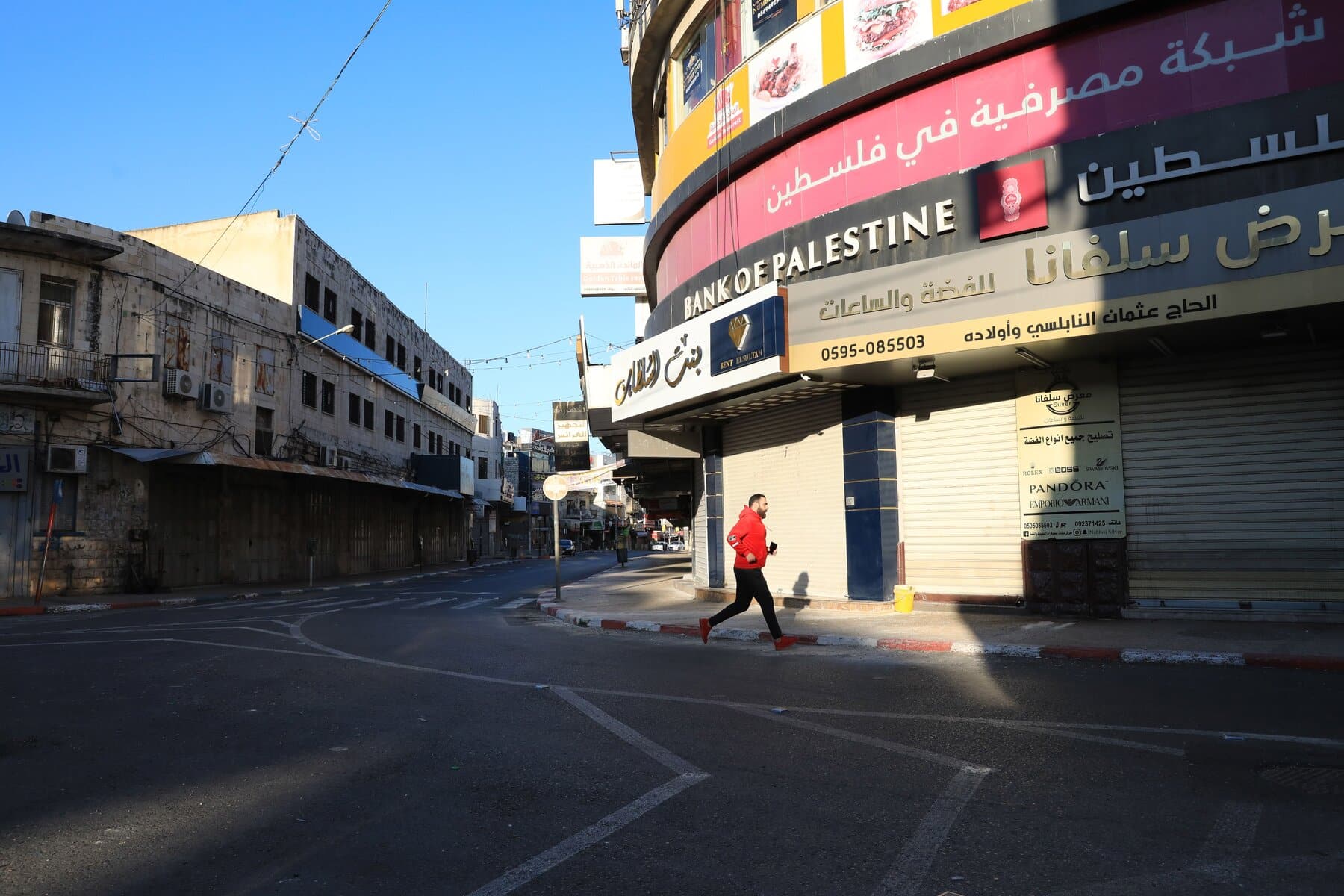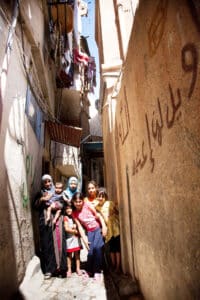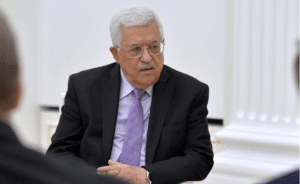Image: the Palestinian city of Nablus on the West Bank is going into another lockdown.
The internationally-acclaimed vaccination success of Israel has a dark side, the consequences of which are being felt in the West Bank and Gaza Strip.
Israel’s ahead-of-the-world vaccination campaign
Israel is leading the world in terms of the percentage of the population that has been vaccinated against COVID-19, and the country is being hailed worldwide as an example for other countries. Israel launched its vaccination campaign in December 2020, prioritizing elderly or vulnerable people and health-care workers. By February, researchers have said, 84% of the eldery population had been fully immunized with the Pfizer two-shot vaccine. As of last Sunday, approximately half of Israel’s citizens overall have been vaccinated.
The country’s quick roll-out is possible because of its universal health care system, but also because it made a deal with Pfizer for an earlier vaccine rollout, to provide data on how the vaccine works. Mass vaccination in Israel has been successful in curbing the coronavirus pandemic, and Israeli gyms, pools, hotels and theaters have started reopening as restrictions are being lifted.
A sharp contrast
The Israeli government is celebrating a sharp drop in COVID-19 cases, but meanwhile in the Palestinian territories, infections are on the rise, hospitalizations are at a record high and a new lockdown has been announced for the next two weeks in an attempt to control the outbreak. The situation in the West Bank and Israeli-blockaded Gaza strip is dire, as there has been no steady supply of vaccines for them.
Most recent numbers indicate that the Palestinian Authority, which controls the West Bank, has received 2,000 doses of the Moderna vaccine from Israel and 10,000 of the Sputnik vaccine from Russia. The Hamas-controlled Gaza Strip has obtained 20,000 doses from the United Arab Emirates and 2,000 doses from the Palestinian Authority, which came out of the Russian donation. At a generous maximum – assuming that all those reported donations are available – this would still only be enough to vaccinate 0.8 percent of the Palestinian population. According to Doctors Without Borders, you are 60 times more likely to receive a COVID vaccine in Israel than in Palestine.
Who is responsible?
Whether Israel has responsibility for the Palestinians in the occupied West Bank and the blockaded Gaza Strip, is a heated debate. Supporters of Israel’s policies have argued that the Palestinian Authority assumed responsibility for health services when it signed the Oslo Accords in the 1990s. So far, the Palestinian Authority’s management of the pandemic has been poor. Palestinian civil society is complaining that the severe vaccine scarcity is causing unfair distribution. The few thousand donated vaccines were supposed to go primarily to medical workers, but, reportedly, the Palestinian Authority is providing the vaccine to only a small number of people, including those who have connections to the government.
Human rights groups, on the other hand, are pointing out that international law requires Israel to bear responsibility and provide Palestinians with equal access: per the Geneva Convention, Israel has a responsibility as an occupying power to ensure the medical supplies to its occupied people, including “preventative measures necessary to combat the spread of contagious diseases and epidemics” to “the fullest extent of the means available to it.” On February 28th, after harsh criticism from international aid groups and the United States, Israel announced a big step in that direction: Israeli medical teams will soon begin vaccinating Palestinians who have permits to work in Israel or in Israeli settlements in the occupied West Bank. There are approximately 80,000 Palestinians who have permits to work in Israel, and about 30,000 who have permits to work in the settlements. However, the tens of thousands of Palestinians who work in Israel without official documents would not be eligible for vaccination, nor would the millions of Palestinians who do not work in Israeli territory.
Vaccines as political bargaining chip
All the while, it is clear beyond a doubt that Israel has surplus doses available. Israeli media have reported that Israeli Prime Minister Netanyahu was considering sending up to 100,000 surplus doses to over a dozen nations in Europe and Latin America, as a diplomatic gesture to reward countries for political favours. Although he quickly abandoned this plan after both internal and international backlash, it is emblematic of the trend that vaccines are increasingly used as a valuable bargaining chip in international politics. The same was true in early February, when Israel briefly blocked the delivery of vaccines to Palestinians in Gaza.
The situation in the Palestinian Terroritories is therefore not force majeure, but a political choice. While Netanyahu is playing politics with vaccines, the vast majority of Palestinians are still waiting to be vaccinated.
Sources: DoctorsWithoutBorders, France24, NewYorkTimes, TheJerusalemPost, NBC, Reuters, AlJazeera1, AlJazeera2, CNBC, NPR, WashingtonPost, AlJazeera3
Image: NewYorkTimes



